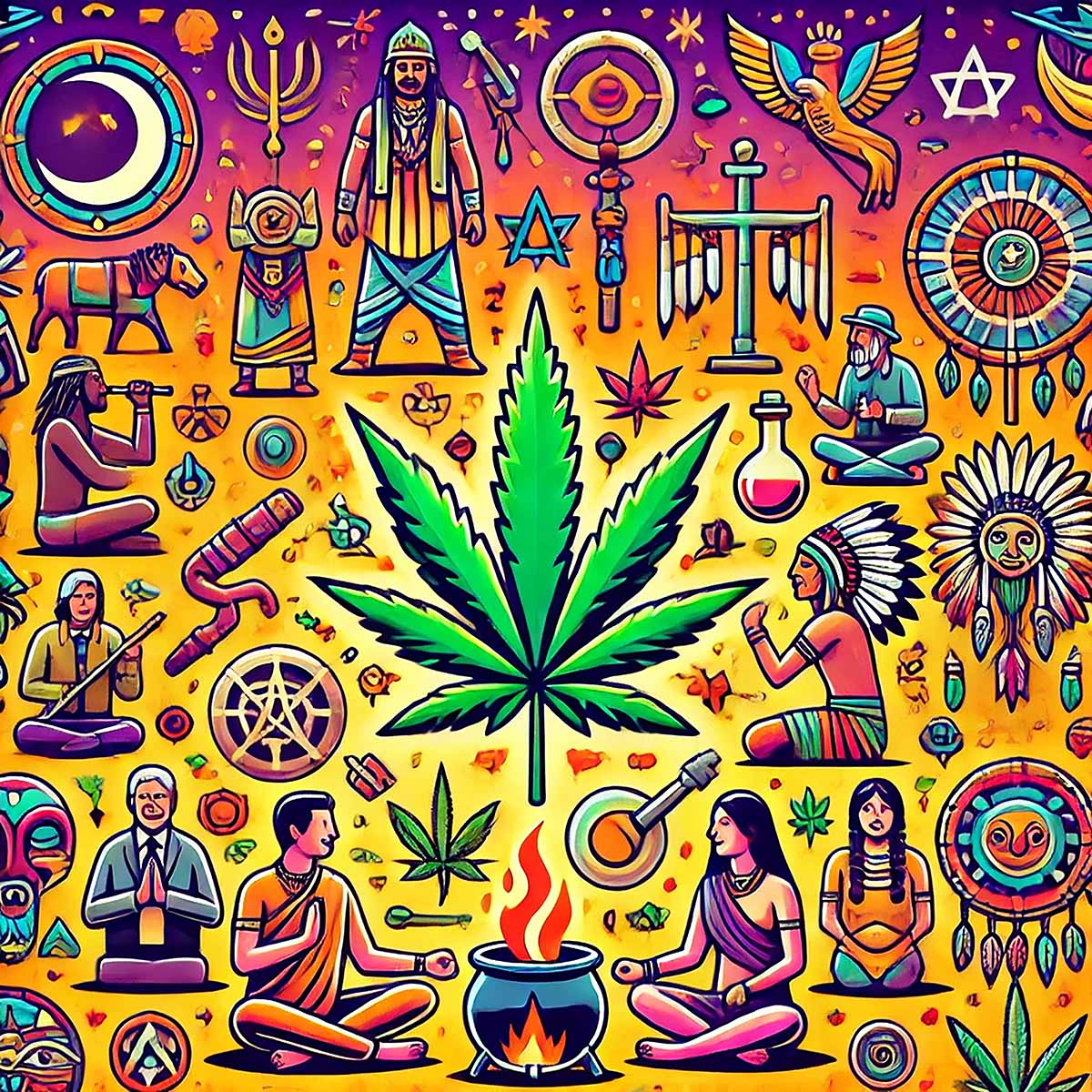Cannabis has a long and varied history, often intertwined with spiritual and religious practices. From ancient rituals to contemporary ceremonies, cannabis has played a significant role in enhancing spiritual experiences and connecting individuals to higher states of consciousness. This article investigates the role of cannabis in spiritual and religious practices throughout history and in modern times.
Historical Perspectives
1. Ancient Civilizations:
- India: In ancient India, cannabis, known as “bhang,” was used in religious ceremonies and is still consumed during festivals like Holi and Shivaratri. It is believed to be a favorite of Lord Shiva, one of the principal deities in Hinduism.
2. Middle East and Central Asia:
- Zoroastrianism: In ancient Persia, cannabis was used in Zoroastrian rituals as part of a sacred drink called “Haoma,” believed to grant divine wisdom and immortality.
3. Ancient China:
- Taoism: Cannabis was used in Taoist rituals for its psychoactive properties, which were believed to facilitate communication with spirits and enhance meditative practices.
4. Africa:
- African Traditional Religions: Various tribes used cannabis in religious rituals and healing practices, believing it to have spiritual and medicinal properties.
Modern Perspectives
1. Rastafarianism:
- Spiritual Use: In Rastafarian culture, cannabis, known as “ganja,” is considered a sacrament that cleanses the body and mind, bringing the user closer to God (Jah).
- Rituals: It is commonly used in reasoning sessions, communal gatherings where members discuss life, philosophy, and spirituality.
3. New Age Spirituality:
- Mindfulness and Meditation: In New Age practices, cannabis is used to enhance mindfulness, meditation, and yoga, promoting relaxation and spiritual growth.
- Healing Ceremonies: Cannabis is incorporated into healing ceremonies to help participants release negative energy and connect with their inner selves.
4. Native American Practices:
- Healing and Rituals: Some Native American tribes use cannabis in healing rituals and spiritual ceremonies, believing it to be a sacred plant with powerful spiritual properties.
- Vision Quests: Cannabis is sometimes used in vision quests to facilitate spiritual journeys and connect with the spirit world.
Benefits and Risks
1. Benefits:
- Enhanced Spiritual Experience: Many users report that cannabis helps them achieve deeper spiritual insights and a stronger connection with the divine.
- Relaxation and Focus: Cannabis can promote relaxation and focus, making it easier to engage in meditative and spiritual practices.
- Community and Connection: Shared use of cannabis in spiritual settings can foster a sense of community and collective consciousness.
2. Risks:
- Dependence: Regular use can lead to psychological dependence, detracting from spiritual growth.
- Altered Perceptions: While altered states can enhance spirituality, they can also lead to confusion or misinterpretation of spiritual experiences.
- Legal and Ethical Considerations: The legal status of cannabis varies widely, and its use in spiritual practices can raise ethical and legal issues.
Summing Up
Cannabis has played a significant role in spiritual and religious practices throughout history and continues to do so in modern times. From ancient rituals to contemporary ceremonies, its use spans cultures and beliefs, enhancing spiritual experiences and connecting individuals to higher states of consciousness. While it offers many potential benefits, it is essential to approach its use with mindfulness and awareness of the associated risks.



